Received my order very fast and was packaged. Nice nicely.
Love the rhodo culture. Two very dark harvests so far. Pods and rotifers love it. NPS and sponges seem to be responding well too.
Phyto, Rotifer, Pods & Brine ship Monday-Wednesday each week.
Dry good orders will go out as they are ordered.
FREE Shipping on live good orders OVER $60.
Site is updated for 2/9/26. For any questions please call 801-901-0970, Skyler.



Reef Legends
5.0 / 5.0
(3) 3 total reviews
Couldn't load pickup availability
Only want pods? Pick a bundle and save today. Choose from our 2 or 3 pod blend bottles. We do recommend feeding live phytoplankton to your aquaria 2-4 times a week to help your copepods reproduce.
Tigriopus californicus will take 3-4 weeks before you start noticing a dramatic increase in population. If you are going to grow them we recommend waiting 5-6 weeks after receiving them and feeding them regularly before your first harvest, by this time your Tigriopus population should be doubled to tripled then harvesting every 2 weeks after that. Tigriopus californicus are loaded with omega-3 fatty acids making them ideal for picky eaters such as butterflies or mandarin gobys. These pods are known for their jerking motion that encourages fish to feed upon them. Females will lay hundreds of eggs during their lifecycle, if you use your phone to zoom in or a microscope you'll see females carrying eggs.
Tisbe copepods are small copepods that require a light to be shown at the bottom of the bottle to see them. We send all sizes/ages in each bottle. Tisbe copepods are a moderate production copepod, needing 2-3 weeks before harvesting. Tisbe pods will consume large amounts of phytoplankton while culturing, you'll often notice you'll have to feed them 4-5 times a week once your population takes off. They also make for a great clean up crew in your reef aquarium, they are bottom dwellers and love to hide in the rocks making them hard for small to medium fish to eat. (mandarins gobys love hunting these guys down) Tisbe copepods are loaded with high nutritional content when fed live phytoplankton.
Apocyclops copepods are medium size, slightly larger than tisbe and slightly smaller than Tigriopus copepods. Youll see these guys jerking in the water column, enticing smaller fish to eat. Apocyclops females will lay eggs every 4-6 days, meaning you can harvest them on a weekly basis if you're culturing them.
If you culture these pods together in a 1 gallon vessel or larger, eventually all the pods will be apocyclops as they reproduce at a faster rate.
Our copepod bottles are packed with pods, if you can't see your pods swimming around inside the bottle you are buying water. Check out our Instagram for pod density.
8 ounce pod bottle will seed a 30-50 gallon aquarium
16 ounce bottle will seed 60-120 gallons
32 ounce bottle will seed 120-220 gallons
64 ounce bottle will seed 230-400 gallons
Reef Legends has great pods and Skyler is awesome to do business with.
Plentiful coepods, swimming around. Plus some crawling around on container walls. All arrived live and in good condition. 5 stars. Chris
They have excellent customer service we are very happy and please with them I would highly recommend them they go above and beyond for their customers we order something from them and it wasnt delivered on time and they notified us without hesitation and replaced our order free of charge when I say they will be getting more of our business they will be from here on out on any salt water stuff
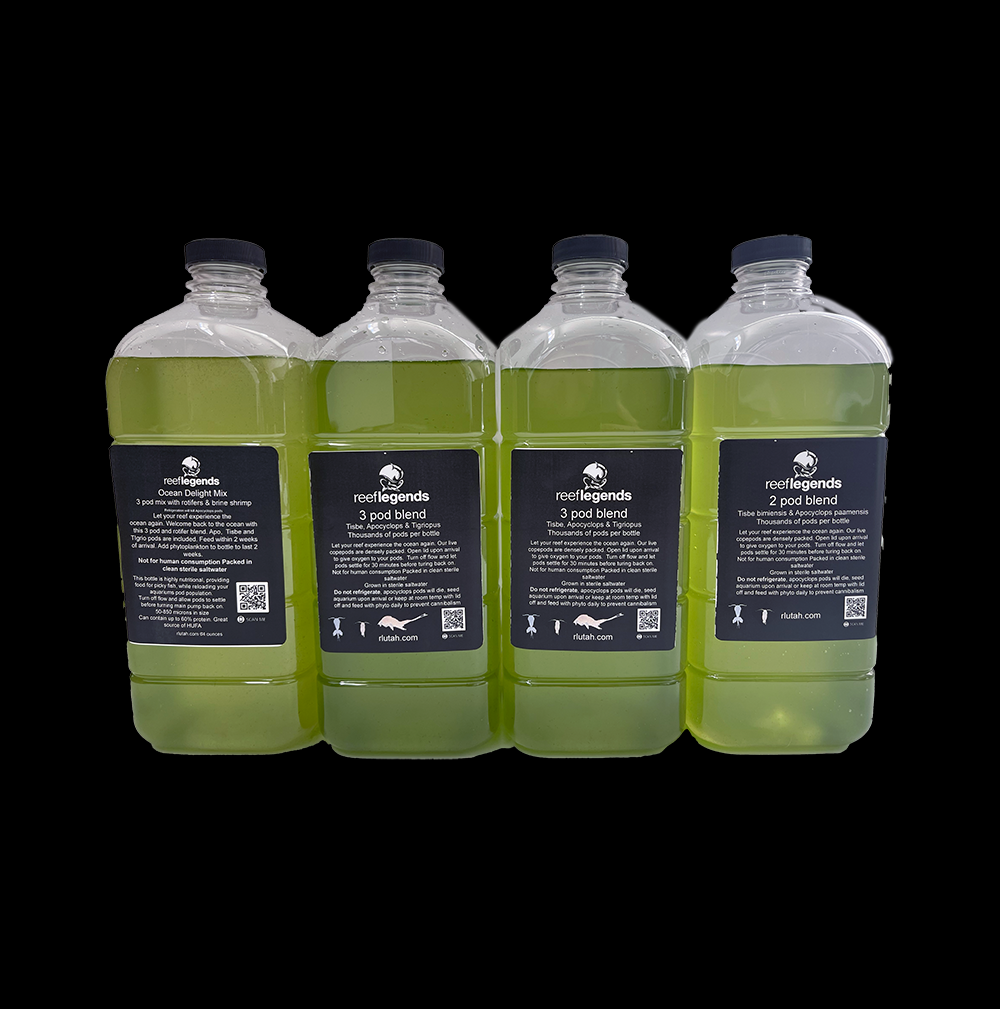
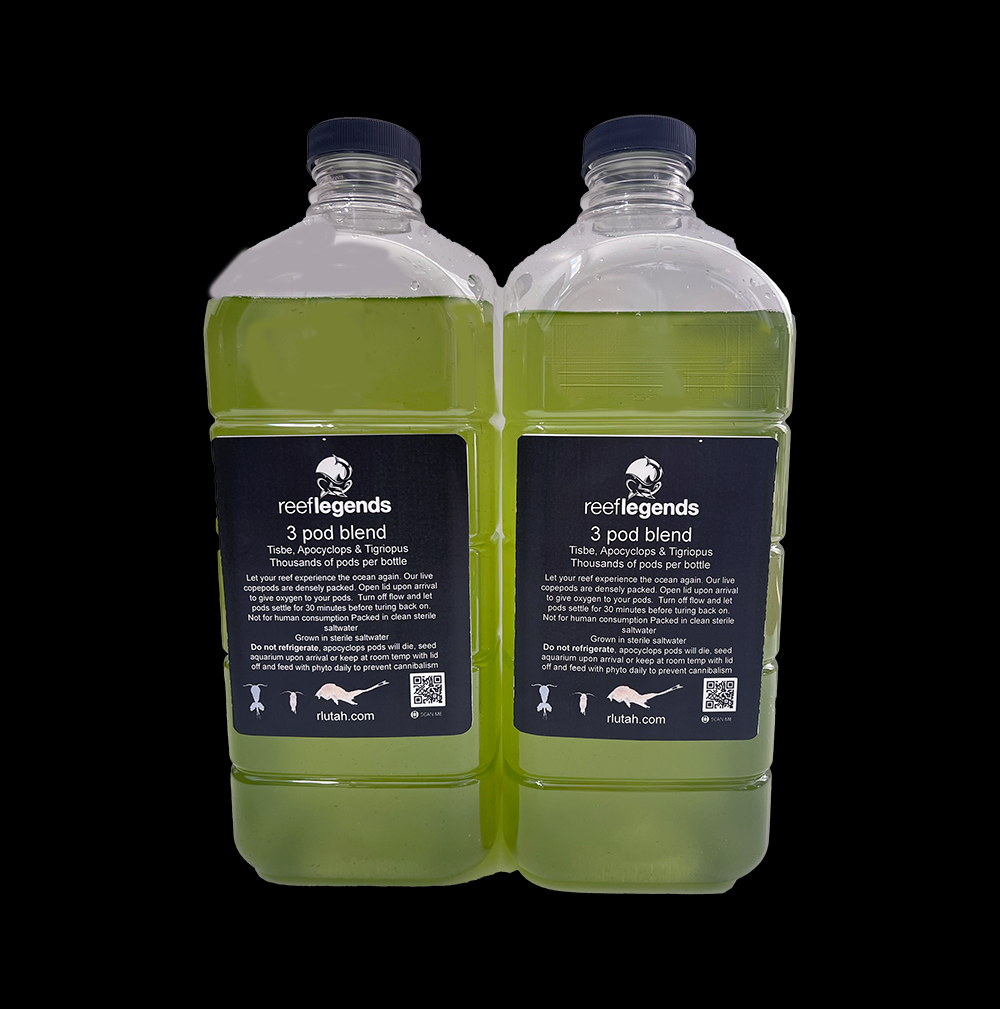
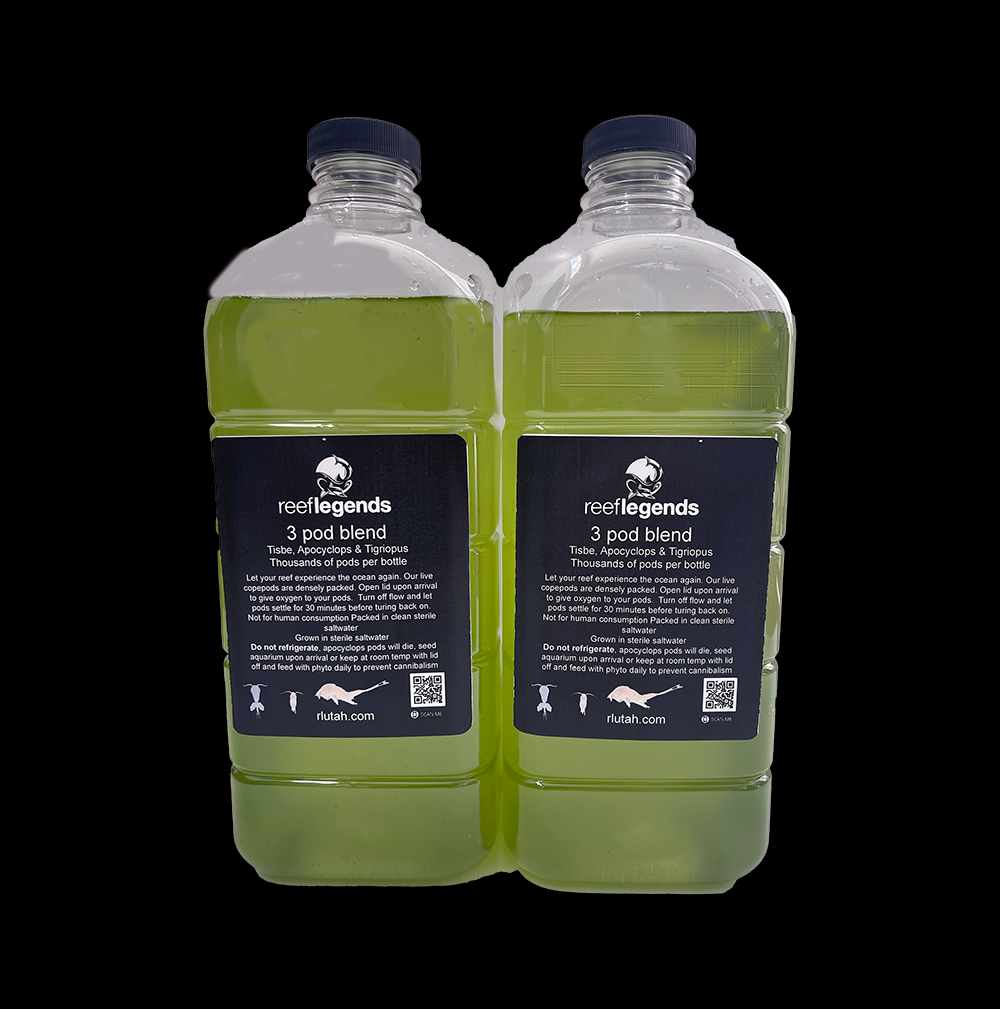
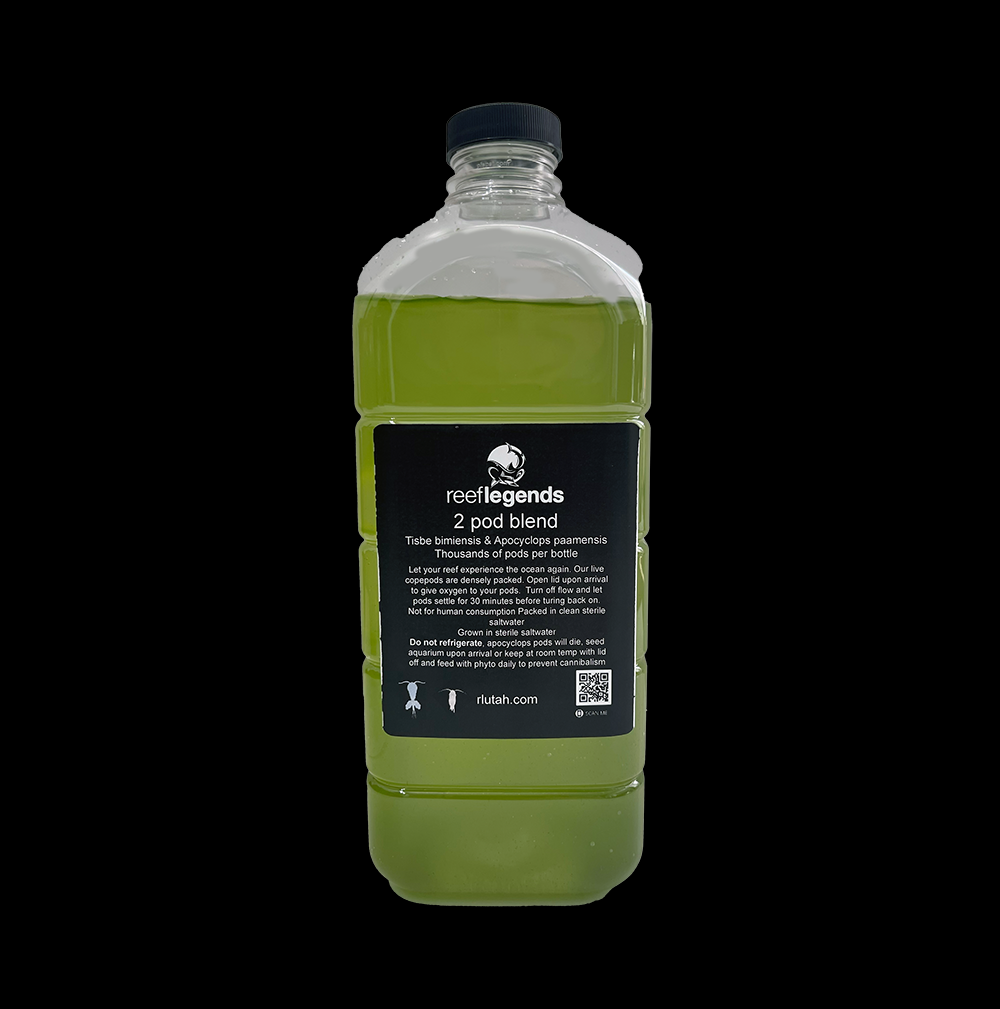
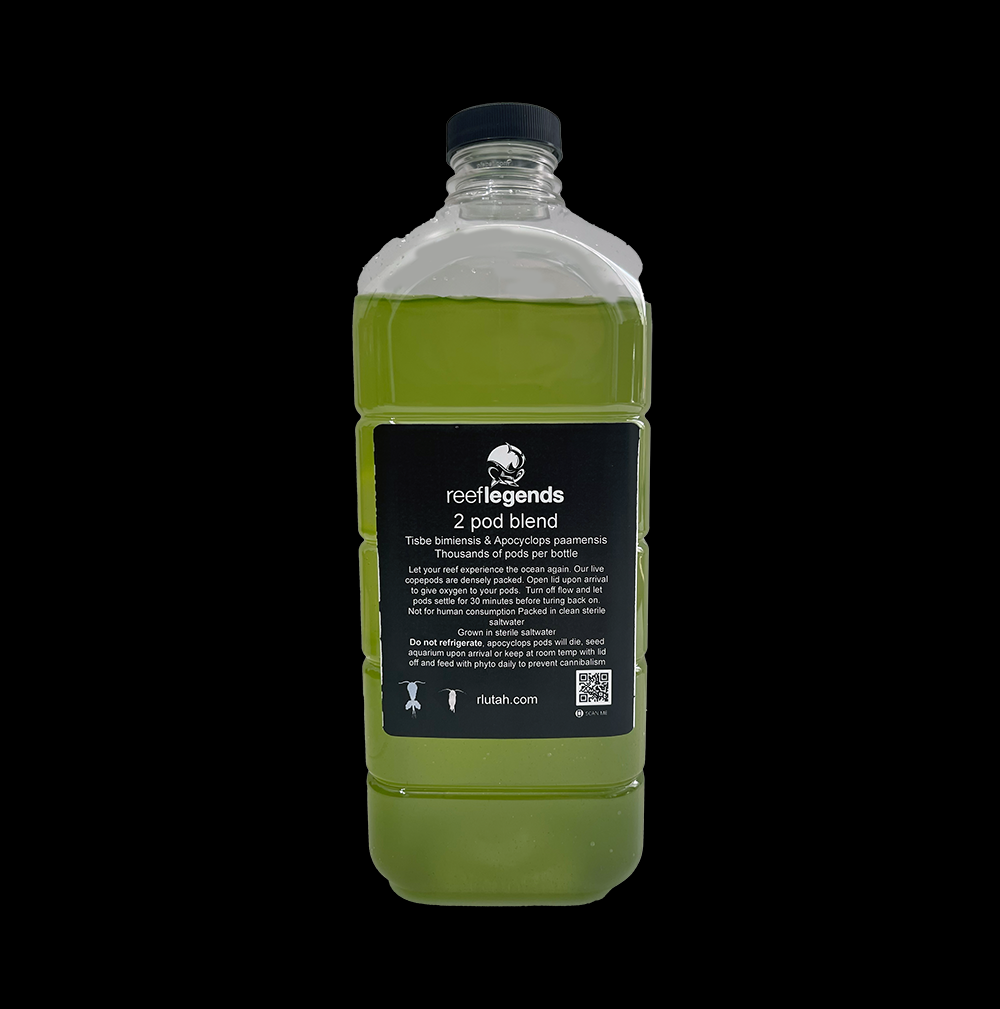
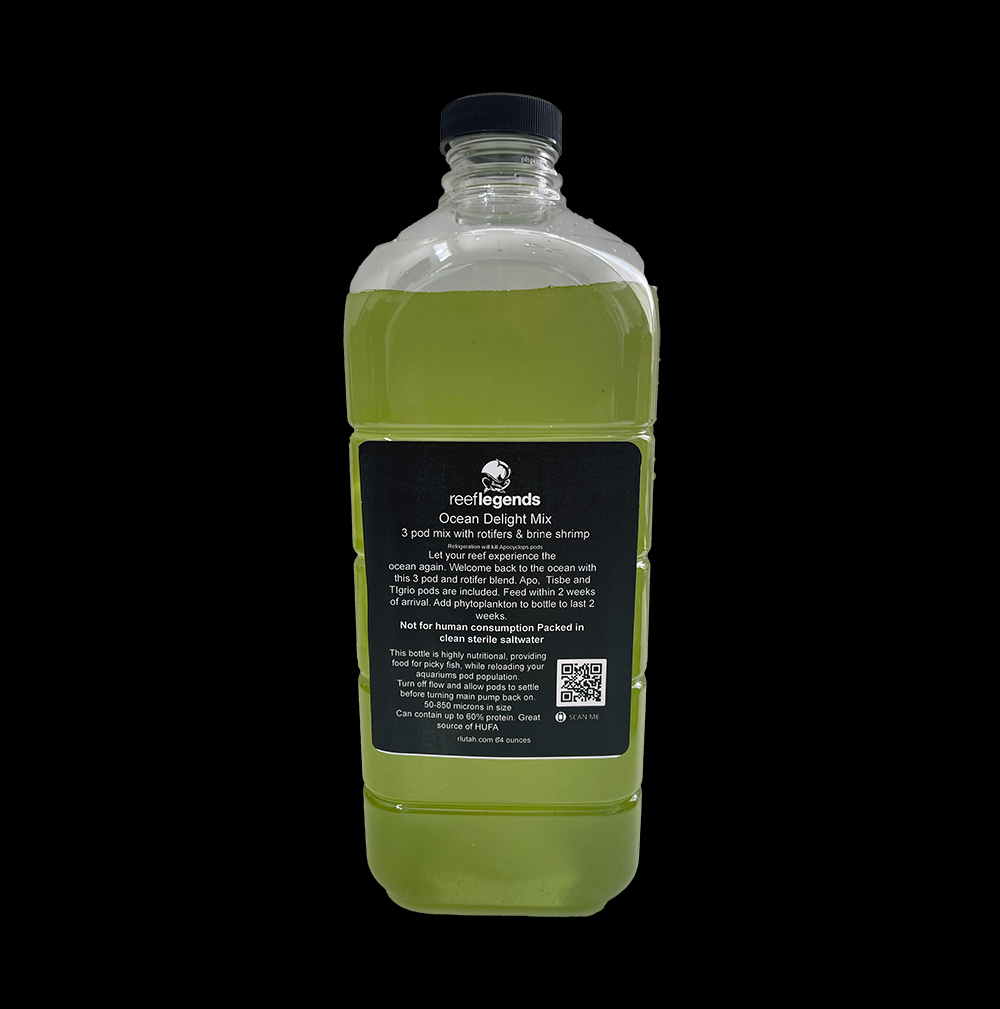
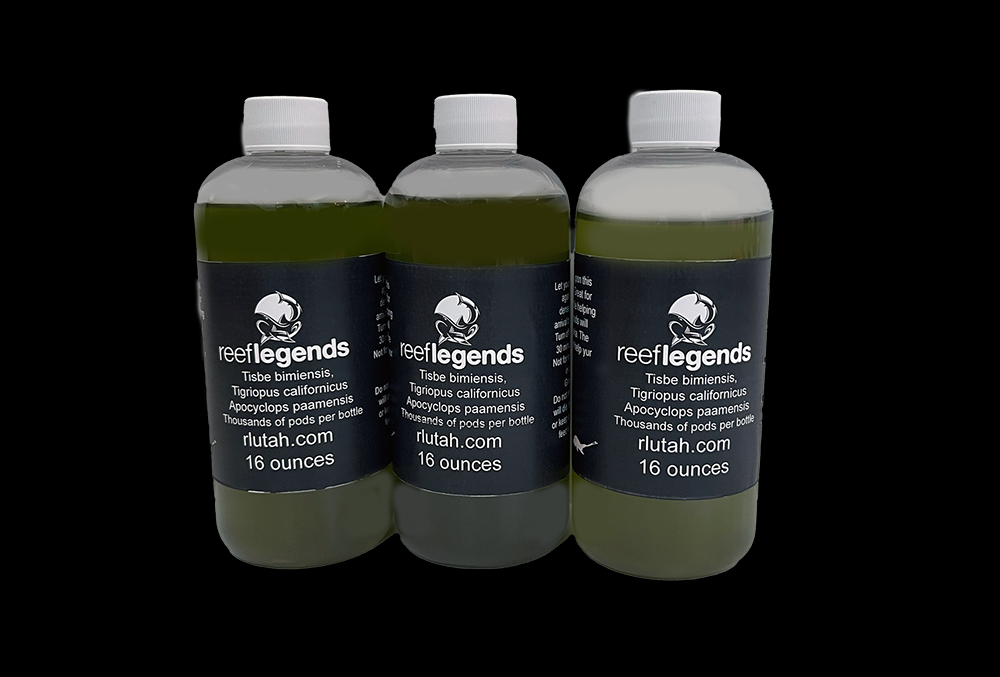

Be the first to know about new collections and exclusive offers.
Reef Legends is the real deal. Not sure where to start, honestly. Deep knowledge, high-quality cultures, and real support when it comes to phytoplankton. The guidance and consultations alone were worth it. Huge thanks for the quality and the help 👍
Magnificent phytoplankton, super green, and all the pods arrived alive.Thank you for the candies.
Just wanted to say thanks for all the help and support getting my first culture started! Great customer service and support! I probably would have failed several times starting out on my own.
I’ll definitely be a customer for a long time.
2nd time ordering from these guys and every batch have been great! The price, packaging and speed of delivery will not disappoint
After two failed attempts to culture R. Salina, I had given up. After watching Skyler's video, I mustered up the courage to try again. He explained there is a difference between phyto for feeding and phyto for culturing. I followed his procedure, and 9 days later I harvested. 1.5 quarts. The extra steps I took to sanitize everything, and to sterilize the media made a big difference. Thank you, Skyler!!!
Starter and harvest pics:
Received my order very fast and was packaged. Nice nicely.
Love the rhodo culture. Two very dark harvests so far. Pods and rotifers love it. NPS and sponges seem to be responding well too.
